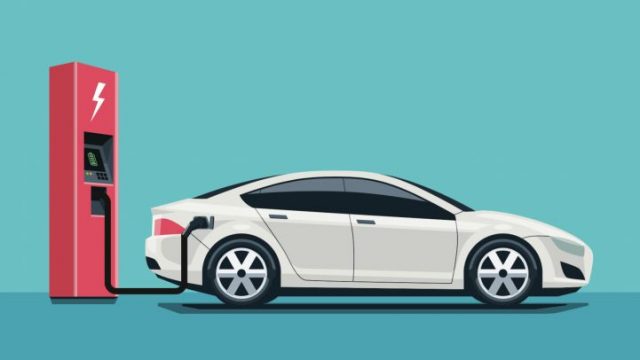The electric vehicle policy prepared by the government is being challenged by the local automobile industry as it believes that it’s in contradiction to the Automotive Development Policy 2016-21.
Pakistan is facing an environmental challenge due to the carbon emissions from the combustion engines. To address this particular issue and reduce the impact of these emissions on the environment, the government has prepared an electric vehicle policy that aims to electrify the auto industry to over 90% by the year 2040. Prime Minister Imran Khan has also approved the initial concept of the proposal which will soon be presented to the cabinet. The Ministry of Climate Change prepared the policy keeping in view the future of electric cars in the country for the coming five years. A target of selling 100,000 electric cars, jeeps and small trucks will be aimed to achieve in the specified period. In the long run, 900,000 units will be sold until 2030 with an aim to sell 90% electric vehicles by 2040. The policy also states that switching to electric vehicles will help to save Rs.110 billion every year.
Local Opposition
The local automobile industry has expressed its concerns. According to them, the electric vehicle (EV) policy should not affect the indigenous auto sector of the country as in the case of the US and China. The automobile sector believes that the EV policy promotes the import of CBU units rather than local manufacturing. Thus an electric vehicle (EV) policy depending on the imports could not be beneficial for the country by any means. 70% of components of electric vehicles are the same as other conventional cars whereas only the remaining 30% components comprise of the battery, electric motor, and other relevant systems. Therefore, the government should focus on the local assembly of 70% of the cars and import the remaining 30% components rather than emphasizing on the import of CBU’s.
The Ex-Chairman of Pakistan Association of Automotive Parts & Accessories Manufacturers (PAAPAM) Mashood Ali Khan believes that electric vehicles (EV) are definitely the future of the auto industry but require long term planning. It would require building up the infrastructure for electric vehicles to succeed in the local market. Furthermore, the government should look to protect the employment and investment in the local auto sector and then formulate a policy.
Recommendations
He recommended a three-stage policy under which the government should first promote the clean and renewable energy program from the year 2020-25. In the second phase from 2026-30, the government should introduce the promotion policy of hybrid electric vehicles (HEV) and plug-in hybrid electric vehicles (PHEV) and ensure the building of charging infrastructure. He also said that a huge reduction in the customs duty of CBU and CKD units will result in the prevention of localization of parts and the local auto sector will suffer a huge loss to the progress made in the previous years. Moreover, the auto sector is the second largest contributor to the national exchequer and such a drastic reduction in duties would adversely affect the revenue collection to a large extent.
Nonetheless, the introduction of electric vehicles in the country would help save the environment from the adverse effects of pollution. However, a policy that also encourages the local industry shall be formulated by the government. The parts such as battery and electric motor can be imported with the rest of the assembling of the vehicle taking place locally.
What is your opinion regarding the proposed electric vehicle auto policy of the government? Drop your comments in the space below and stay connected to PakWheels for more updates.



Very imprtant need of electric vehicles for the country to get rid of pollution
fucking monopolist
The automotive industry always opposes any measures that doesn’t put money into their pockets. They haven’t managed to build any exports because of of the third class quality of their products and don’t want the Pakistani consumer to have any options.